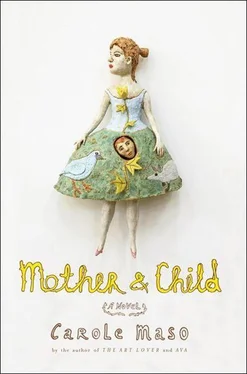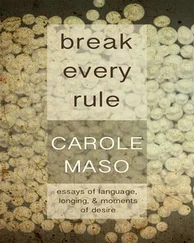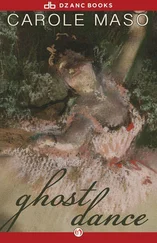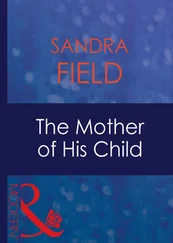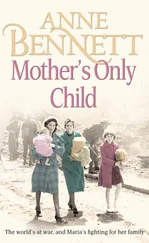The baby’s head, cushioned with kisses, became impervious to the cruel and petty ways of some of the children who seemed to roam the earth, belligerent as if already in training for war.
Even now the child felt her head to be kiss encrusted, and wherever she walked in the unkissed world, she was protected.

THE MOTHER IS leaving behind a gesture of her time here. The way she moved through space. A gesture of utmost care and protection, a repetitive one, her hand moving through the child’s hair (that streaming and gleam) and what comes from it, this engagement with time and this one human life. The mother’s hand running through the smooth of the daughter’s dark hair. Is it not like silk as the darkness pours down, pours and pours, and the mother’s gesture reverberates through time and space, leaving no visible trace, but leaving a trace nonetheless. These were the records left beneath the official records. Undocumented, incapable of being caught by a camera or any other means. Beneath the story of the mother on a tablet, or a book, or a grave, is the gesture. The fingers starting at the forehead move through her hair, gently raking it back, and then in a circular motion, curling it around the right ear.
How mesmerizing is this single, simple act of love and concern and protection. There’s a feeling that no harm can come, though harm is everywhere around them. How mysterious they are, and how light, as if they were made only of wind and of dust. How buoyant. The way this singular but not uncommon gesture, left to the child, will live on. As the child runs her own hand through her own child’s hair one day, a shadow mother accompanies her. The smaller gesture asleep in the memory of the child, dormant, but waiting. The child’s hair, that gorgeous cascade of darkness, shrouding her face, and then the hand coming seemingly out of nowhere to comfort, to help, to arrange — and the tenderness of the mother, which is more, some days, than the child can bear. And that is what the child recoils from, when she recoils — from the tenderness. Sloughing off the mother, for how otherwise is a child supposed to grow and live?
Long after, the child will regret that shielding — what did she think she was protecting herself from? Long after, sitting by the river, the child will still wonder whether the mother died with the recoiling that day in her mind’s eye, as she tried to push the hair gently away from the child’s face, and the child veering slightly away — No, she had pulled away, as if from a demon. This makes the dead mother smile. Children always believed themselves to be the center of each and every instant of their particular adult’s life. The mother closes her eyes. A velvet curtain closes before her.
And even now, the mother cannot be sentimental. She had watched the child vanish over and over into another phase of being, and it had hardened her, and it taught her never to get too attached to any person, especially a child. Attachments were not what the world suggested. The world tended toward change and suggested it was the changing, the metamorphosis, that was important. It was one of the most useful and most difficult things she had ever learned while on earth. From here she floated and watched the child grow and grow and change, and change again, vanishing so many times until she, the child herself, had become an old woman like the Grandmother from the North Pole, who is eternal.
SHE CONCENTRATED ON the moth — its pale green wings against the screen. She put her hand to it. In winter, she would remember that simple gesture — her desire, the silence.
THE MOTHER THINKS it is sad that after she is dead, the child, who will be a grown woman, will have no way of knowing that this day ever occurred. No one will remember this afternoon — the child so young, the moment so ordinary, so easily forgotten. She will have no recollection of it whatsoever. That they made a collage, that they made paste from flour and water and sometimes they spread it with a paintbrush. They buried little figures inside their Playdough cakes. Grumpy or Sleepy. We make our appearance here. Forgetfulness closes up over us from both ends of the life cycle. In a hundred years the mother and child will be forgotten. The mother called in her orders to the Rose Bakery, and the child filled them. I would like a wedding cake with blue roses, and five loaves of heart-shaped breads, and three dozen hot cross buns.
No one will remember this afternoon — the child so young, the moment so ordinary, so easily forgotten.
AND ON ANOTHER afternoon: when the mother and child played Vet, there was often a problem with Bunny Boy’s purr box, and they had to wrap him in scarves. Bunny Boy, a reluctant patient, wriggling out of his clothes, remained unamused. There is nothing wrong with my purr box, he said.
SLOWLY THE MOTHER and child emerge from the amorphous world of marble, though it is so difficult, and the mother appears half immersed in it, until the last minute, and were it not for the child urging her out, she would sink back into the silence and gorgeousness, and be subsumed. One cannot help but think of the great artist liberating the figures imprisoned in the stone. Come to me, the child beckons to her mother, who is half in earth and half emerged, and for an agonizing moment, the mother is petrified there. The mother has a mind of stone, but the child with her touch calls the mother forth, releasing her from oblivion’s pull.
AND WHEN THE mother gets tangled or trussed in the Cat’s Cradle, the child sets the strings smooth again.
OUTSIDE THE SPIEGELPALAIS, a little impromptu play was being staged. Bits of dialog were carried out on the breeze. Nothing was heard in its entirety, and yet nothing was missed. The play came together remarkably: complete, whole in its fragments. There was a smattering of applause. Though no one could agree on its content.
It’s a history of the Valley; it’s a story of the river; it’s a pageant; it’s actually rather more a pastiche, the last remaining professor in the Valley said; but whatever it was, all seemed unruffled, and all seemed pleased, and there was a lilting quality to the day. It was all there this time right before them, spoken above the breeze. No one seemed worried that it was not entirely accessible.
Where the Spiegelpalais had come from, something that had once troubled them, long ago had fallen away, and they could not remember anymore a time when the Spiegelpalais had not been here.
Once they might have wished the play to be something more solid, more continuous, less troubling, more legible, and that there might be something they could take away from the experience and put neatly somewhere, some insight, some truth. Once they might have hoped for a meaning — that it had all actually meant something. So often the assumption had been that there was a message, waiting to be excavated, decoded. Once they had yearned for a truth that might be absolute, but all that had passed — they could not explain how. The Spiegelpalais had worked its strange magic.
When the play was over, the mother felt sure she knew something she had not known before. There was something of a recognition; there was no way beyond that to articulate what she felt or knew except that the play had made certain longings emphatic and would allow, she suspected, for other feelings on other evenings to come to the fore. The Palatines who had come to the Valley named everything for the Rhine, which they missed with all their hearts. It’s a history of our desires. Memories of the breathing and billowy world.
And what we thought was central turns out to be peripheral. And what we thought was solid dissolves. Gone, the emphatic orb of afternoon. Dusk had arrived.
Читать дальше
